Online Collaboration &
Info Aggregation Tools
Possibly the most used online collaboration tool is Google Docs. Essentially the site allows for cloud stored documents such as Word Processing files and Spreadsheets to be accessed and altered by any connected user. Big bonuses in this service over others are it's link to a Google account providing credibility and assuredness in areas such as security. Being a browser-based application also allows for minimal requirement in using the service.
It would be interesting to see Microsoft Word and other stalwart applications take a similar stance to cloud storage and collaboration. Adobe, for instance, offers screen sharing functionality but no active real-time collaboration over the internet across its Creative Suite packages.
Wikipedia is the largest open-access encyclopaedia on the internet today. Extensive articles on millions of topics and subjects are all filled with user-input information, all citing various sources and drawing on the millions of users' personal knowledge. Subjects that were once near impossible to track information about are now presented to any user in as full-a-detail as is known.
The main issue with Wikipedia is its credibility as an information resource. With information being readily editable in real-time by any user means certain articles can become distorted and altered to the point of fallacy. Regardless of this fact though, Wikipedia is a great example of the potential in online collaboration.

Dropbox is a service I use heavily in my day-to-day routine. The service performs the simplest of functions in the sleekest of ways; syncing a group of folders across machines either through its browser interface or in the native folder within the operating system's file architecture. Essentially I can open a file from my Dropbox folder at University and when I get home the same folder is synced up-to-date. This cloud storage file system is something that is already available in the previously researched Google Docs although Dropbox offers a solution for users working in larger teams and in other application. For instance, many real-world design studio will store their current projects on Dropbox so all employees can access and alter the latest files. Another benefit of course is the online backup provided here without the user even noticing.
Basecamp is a project collaboration tool designed to bring together the numerous, random scattering of information and present it in a time lined, accessible fashion. Using a message board type hub, the connected users can post ideas/concepts for projects which others can comment on. Basecamp promote this feature as the ideal solution to untraceable emails, missing CC recipients etc. A whole variety of file types can also be uploaded to the service and made readily "pre-viewable" to every user.
The main concept here is a sort of fully-fledged out, project orientated Google Docs. I can see this being an extremely useful service in boosting efficiency and productivity on a whole manner of work.
Most of the tools for online collaboration are based on providing generic functions for project management across multiple business sectors. Cage is a new start-up service, still in BETA phase, with the intention of providing a resource tailored for those within the design industry. Work is easily uploaded by any member of a team/studio and made available for extensive mark-up by the other members. The site almost functions as a online critique of current projects being handled by a studio, thus saving time by arranging formal crits/meetings.

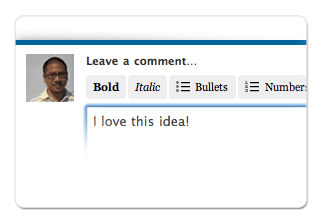
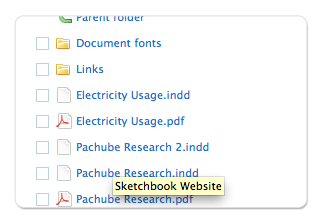
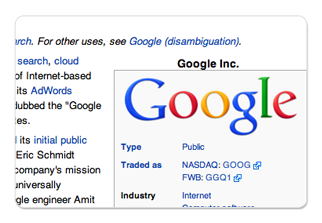
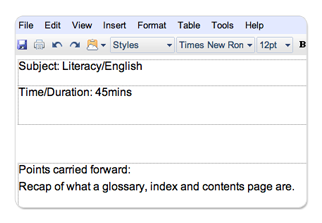



Adidas miCoach is an online data aggregation site that takes information input from exercise, workout and training equipment. The service collates information such as pace and distance of a run undertaken, heart rate, calories burned etc. All this information is then visualised and presented to the user in a series of charts and graphs. The service could be compared to a refined, and specific evolution of the idea behind Pachube.
I'd be interesting in further exploring the idea behind Pachube and information aggregation and how other business sectors could host their own servers providing real-time data from personalised and automated data.
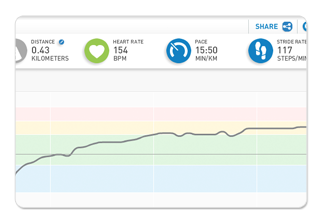
I've already covered Pachube in detail in another section of this site but for the sake of linking research I'll touch on the project again. The service allows for the collection of data from all kinds of sources be it manual input with preset units, automated readings of electricity and temperature to sharing localised radiation levels in Japan after the 2011 Earthquake. Pachube works as a hub of the data, the possibilities and potential of the service though are dependent on the users ideas for using the tool.
Sites like Adidas miCoach and Nike+ work as extensions and finalised forms for big business of Pachube's original idea and concept.
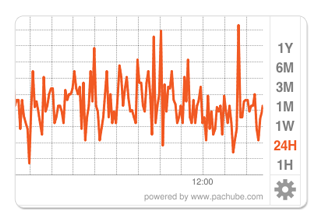
GeoCommons is a similar service to Pachube in that it provides the visualisation of data, and specifically location based data. All data is visualised in the form of a map with such widely-varying examples such as the "spatial clustering of Facebook Check-Ins in Atlanta" and "Violence against journalists in Afghanistan 2001-2011". Pachube offers similar visualisations such as the map of Japan and highlighted areas signifying radiation levels.
Nike+ is a run tracking service similar to Adidas miCoach. Data is gathered from a sensor inside the running shoe and then sent online. There, users can check the stats for their run such as pace, distance etc.
The site also includes social integration through the ability to "challenge" friends to races no matter where each user is in the world. In design terms, this site is very well done in my opinion, although based wholly in Flash it applies clean-cut design in visualising the data calculated from the users runs.
It's interesting to look back at the beginnings of online collaboration and data gathering, with the first form of collecting data and creating a network being through online mailing lists.
By collecting a database of email address a simple, initial form of networking was created although the data flow would have been uni-directional there's still a sense of sharing amongst a community through these very first mailing lists and newsletters.




Twitter, the world's fastest growing social network online today, has managed to carve its own lane alongside the market behemoth that is Facebook. Through a different unique approach to sharing, Twitter has managed to attract users to use the service as well as, rather than a replacement to, Facebook.
Without the need to "Friend Requests", Twitter is about as open as a social network can be allowing users to share data amongst the massive network. The trending topics feature also allows shared info and certain topics to be ranked and promoted based upon their popularity. With short 140 character only updates, Twitter promotes the fast sharing of information as well as through geolocation, the ability to track what people are talking about most by Continent, Country or even City. This enables users to receive and view relevant data to them and their surroundings.
Facebook, the undoubted crown-wearer of Social Networking has begun to come under scrutiny for its stance on sharing, privacy and security in concern to its members. As a service the site allows users to upload and share a variety of media, be it URL links, photos, videos etc which essentially creates an online network of sharing, communication and collaboration.
One big, controversial issue with Facebook is their handling of uploaded photos; users who choose to host their images on the Facebook servers do so with the clause that they give all rights to Facebook. Essentially the millions of personal photos Facebook users share with their friends are now owned by Facebook, who are free to use them however they like; e.g. in Marketing. This has led to a lot of users choosing to leave the service in recent times.
Diaspora is a social network built to stand against Facebook with a focus on openness and privacy. Although only in Alpha, Diaspora basically enables computers to share updates, photos and videos directly with each other. It eliminates the middleman, i.e. Facebook, Flickr, Google or Twitter, so no one has access to your data but you and your friends. This idea seems to take the internet back to its original methods of sharing before big corporations were involved and had access to users information and files. I actually donated to the Diaspora cause when it was on KickStarter and am a member of the Alpha version today, purely because of the freedom and peace of mind granted by not hosting all my personal, and often private data on Facebook for them to essentially "own".
Reasons to Switch to Diaspora (lifted from www.joindiaspora.com)
1. It's Opensource
2. No advertisements of any kind
3. You retain complete control over your private data.
4. No nymwars! Call yourself whatever you like
5. No censorship! Post whatever you like
6. No big brother spying on you
7. No restrictions on post or comment length
8. Animated gifs are allowed
9. No restrictions on picture size or shape
11. Simple and clean interface
12. Friendly and interesting community
The Web 2.0 Suicide Machine is a tool to aid users in the removal and deletion of their social network site accounts. The service promotes itself as a chance for users wishing to "come back to reality" and "meet their real neighbours". The service seems to work based off the fact that there is a considerable amount of time and effort needed to fully remove your existence from the multitude of services most users are registered to, the image below from the site seems to suggest it can cut the time down by 10 times for Facebook "suicide".
The service itself works as a script that will run right before your eyes, changing your password, removing friends, deleting all your stored data before finally removing yourself on the chosen social network's delete profile setting (which only HIDES a profile allowing for later restoration, rather than deleting it all together.
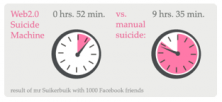
The video here, lifted from the Suicide Machine site shows the process happening. Whilst I may not fully agree with the service, I can see the clear benefits of removing your online presence.